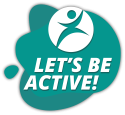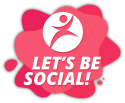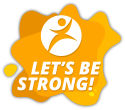Resources for Older Adults
Stay On Your Feet with these helpful resources!
Resources for Older Adults
Below are a number of links to additional resources and video content based on what you are interested in learning more about. You can always reach out to your local Health Unit and their contact information can be found on our Contact Us page.

Let’s Be Active!
Staying active will help to improve your flexibility, balance, and muscle strength. Learn more with the Let’s Be Active fact sheet.
The 24-hour Movement Guidelines for Older Adults look at how adults (65+) can stay healthy by considering their daily physical activity, sedentary behaviours, and sleep.
It is recommended that adults, 65 years or older engage in:
- 150 minutes of moderate to vigorous aerobic physical activity per week, in bouts of 10 minutes or more.
- Muscle strengthening activities at least twice a week.
- Physical activities that challenge balance.
- 7-8 hours of good quality sleep, with consistent bed and wake-up times.
-
-
- No more than 3 hours of recreational screen time per day. Break up long periods of sitting, as often as possible.
Free Community Exercise Classes are available in communities across Northeastern Ontario for community dwelling older adults.
- Victorian Order of Nurses (VON): Communities served: Sault Ste Maria and Algoma district, North Bay, Cochrane district, Sudbury and Districts
- Contact: 1-800-265-5379
- Centre de Santé Communautaire du Temiskaming
- Contact: 1-800-835-2728
- Programs are offered in French
- Centre de santé Communautaire de Timmins
- Contact: 705-269 2728
- Programs are offered in French
- Registration form (PDF)
- City of Temiskaming Shores
- Contact: 705-647-5709
- East Parry Sound Community Support Services
- Contact: 705-724-6028 or 1-888-521-0000
- Kirkland Lake Complex
- Contact: 705-567-5215
- Mattawa Wellness
- Contact: Mattawawellness@gmail.com
- West Nipissing Community Health Centre
- Contact: 705-753-0151
- West Parry Sound Community Support Services
- Contact:705-746-5602
- Temagami Family Health Team
- Contact: 705-569-3244
STAND UP! is a free 12- week fall prevention program offered across Northeastern Ontario.
- STAND UP! focuses on building balance, strength, and flexibility, as well as providing weekly education sessions on fall prevention.
- Contact your local provider to learn more about when a class will be offered in your community.
Looking to stay active at home? Here are some virtual options to take part in from the comfort of your home. Ensure the area you are using to be active is clear of any potential hazards.
- Move 50+ has a variety of training videos and health information designed for the needs of people over the age of 50.
- Exercises at the Kitchen Sink are done while using a support and will help to improve your balance, strength, endurance, and flexibility.
- Canada’s National Ballet School’s Dance like no one’s watching videos provide standing and seated demonstrations of a variety of dances.
- Le GO! pour bouger is a physical activity program created and adapted to help older adults stay active from the comfort of home.
Winter Safety is important when considering being active outdoors all year round. The Winter Safety fact sheet will provide you with helpful tips to prepare for your outings.
- Stay Warm: in cold temperatures, cover all exposed skin.
- Stay Safe: prepare your environment to stay safe, have your winter tools ready and be aware of any hazards.
- Stay Active: reduce your risk of injury and falls all year by staying active.
Foot Care is an important part of staying active and preventing falls. Before starting an activity, consider the following:
- Managing your shoes and feet is an important part of preventing falls. Unsafe footwear or common foot problems, such as corns, calluses or ingrown toenails, can upset your balance and even change how you walk. You can see different foot care specialists for your foot care needs such as podiatrists, chiropodists or a foot care nurse. Check OHIP for current foot health coverage.
- This Safe Footwear resource will provide you with helpful tips to look for to help keep you safe.

Let’s Be Social!
Staying social helps build relationships and improve your mental health. Learn more with the Let’s Be Social fact sheet.
Connecting with others through in-person and virtual ways is a great way to meet people, or to try something new! Learn a new hobby to keep an active mind and make friends with common interests.
- Participate in community activities that you enjoy and look for ways to get involved. Consider joining a local seniors active living centre. They offer social and recreational opportunities such as card games, potlucks, exercise and more.
- Volunteer your time to not only help your community but meet new people. Contact your municipality or senior agencies to discover opportunities for social participation and volunteering.
- Join a group exercise program in your community. Participate with others or go on walks with friends to increase social interactions.
- Contact your local Community Centre/gym, seniors active living centre, or public health unit to find out what is available.
- Cyber Seniors provides FREE technology support and training for older adults using an intergenerational, volunteer model. Young people act as digital mentors and senior citizens gain access to effective technology training and intergenerational communities that keep them socially connected and engaged. Call Toll-Free if you need technology help: 1 844-217-3057.
- A Friendly Voice Program is a FREE, confidential “warm line” for older Ontarians, 55+ who just want to chat with a friendly person who cares, without expectations or judgment. The program is open seven days a week, from 8:00 a.m. to 10:00 p.m. Volunteers offer an empathetic ear and good conversation. Call toll-free @ 1-855-892-9992.
- Senior Centre Without Walls (SCWW) is a FREE program that can be accessed with simply a phone. A fun way to learn interesting information and participate in brain-stimulating activities. A local community centre from the comfort of your home where you can make social connections and create new friendships.
There are many health, community and social services that can help you.
Provincial and municipal services to help link you to your community can be found on:
- 211 Ontario: is a website and helpline that easily connects people to the social services, programs and community supports they need. Connect with them to find meal delivery services, group dining opportunities and more
- Municipal 3-1-1: is a telephone service to access information about non-emergency municipal services (such as by-law enforcement, road repairs, garbage collection, municipal recreation programs, library programs, property taxes, etc.).
- Age-friendly community guides: Some communities also have specific guides to help you find new opportunities:
- Access Public Libraries as they are a great resource for things happening in your community. Check out your local library to access a variety of programs as well as free public Wi-Fi access and technology support.
- Call your municipality or 3-1-1 for information on local library programs.

Let’s Be Strong!
Staying strong is a holistic approach to reducing and removing barriers to healthy aging. Learn more with the Let’s Be Strong fact sheet.
Managing our health and health conditions is a key strategy in preventing falls. Reach out to supports and services that can help.
- To help see if you’re at risk for falls, complete the Staying Independent Checklist and talk with your health care provider about your risk factors.
- Learn what to do after a fall if you can get up, cannot get up, or witness a fall.
- The Ontario Seniors Dental Care Program provides free, routine dental services for low-income seniors who are 65 years of age or older.
- Vaccinations help adults stay healthy. The protection offered by some vaccines only lasts for a certain amount of time, so it is important to receive booster doses in adulthood to keep yourself and those around you safe. Older adults may qualify for new vaccines. Contact your health care provider to find out more.
- The Assistive Device Program links individuals to assessments and information on financial supports for equipment and supplies.
- 211 Ontario is a website and helpline that easily connect people to the social services, programs and community supports they need. Connect with them to find supports and services near you.
- The Osteoporosis Strategy provides resources to support building strong bones, and evidence based recommendations to help reduce the risk of fractures.
Managing medications can help improve or maintain your health. As you get older, the way medication affects you can change.
- The 5 Questions to Ask About Your Medications will help start a conversation about medications with health care providers.
- Clean it out!
- Medication is hazardous waste. Do not flush it. Do not throw it in the garbage. Help prevent poisoning, abuse, and misuse.
- Return any unused, unwanted, or expired medications to your local pharmacy or municipality for safe disposal. Contact your local public health unit or pharmacy for a medication clean out bag.
- Do not share your medications. Sharing prescription medications can be harmful and is illegal.
- If you need to dispose of cannabis, take steps to protect pets, children, youth and others from consuming it. For example: blend your cannabis with water, mix it with compostable materials, such as discarded food, and put it in your regular household garbage or compost. If you’re worried about odours, blend it with water and cat litter, and put it in your regular garbage (Government of Canada: Growing cannabis at home safely – Canada.ca)
- Here is an important video reminder on managing your medication.
Managing foot care and safe footwear can help in maintaining or improving our balance.
- Managing your shoes and feet is an important part of preventing falls. Unsafe footwear or common foot problems, such as corns, calluses or ingrown toenails, can upset your balance and even change how you walk. You can see different foot care specialists for your foot care needs such as podiatrists, chiropodists or a foot care nurse. Check OHIP for current foot health coverage.
- This Safe Footwear resource that will provide you with what to look for to help keep you safe.
Managing Eyesight and Hearing is important to ensure we identify and navigate hazards in our environment.
- Visit an eye care professional regularly to detect and manage any changes to your eyesight. Check OHIP for current eye exam coverage for those 65 and older. Most changes are gradual so you may not notice them immediately.
- Talk to your health care provider if you experience a decrease in your hearing, have wax buildup or trouble hearing.
Keeping your home safe by regularly identifying, reporting, and removing hazards can support maintaining your independence.
- Using the Home Safety Checklist, take a tour of your home to identify, report and remove any hazards in and around your home.
- Learn more about falls and fall prevention with the If You Fall or Witness a Fall, Do You Know What to Do? resource. It is important to know what to do if you fall or if you see someone fall.
- For information about home adaptations check out the Information for Seniors.
- Find out more about grants and services offered in the Province of Ontario.
Eating well supports your health by having a balanced diet and staying hydrated to carry out daily activities. Poor nutrition can affect your risk for falls, and how you react to and recover from an injury.
- Dial a Dietitian: Older adults can call Health811 to speak directly with a registered dietitian for free.
- Canada’s Food Guide provides healthy eating information, recipes and more.
- Short videos were created by Public Health Sudbury & Districts to promote the importance of drinking water, preparing meals at home and meal planning.
- North Bay Parry Sound District Health Unit created a series of healthy eating educational videos to support the nutritional needs of older adults. Videos cover topics such as the social side of eating, eating well on a budget, and cooking for 1 or 2.
- Cookspiration houses a large variety of healthy recipes along with an easy to use menu planning tool.
- Stay on Your Feet has recipes cards to support eating well for life and starting your day off right.
- Unlock Food is a bilingual website brought to you by Dietitians of Canada. Visit Unlock Food to find information on nutrition, food and healthy eating, cooking for one, as well as recipes, videos and online tools.
- SCREEN© is a validated nutrition screening tool created to assess the nutritional risk of community-dwelling older adults (55+). The tool is easy to administer (5 to 10 minutes) and can be completed by older adults or a health care provider. SCREEN© is available in both English and French and focuses on risks factors for malnutrition, overall food intake and changes to appetite and weight.
Additional Resources
The Ontario Caregiver Organization and Caregiving | McMaster Optimal Aging Portal have a variety of resources and services available to support those caring for an older adult.
